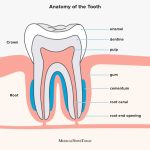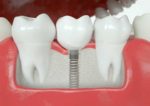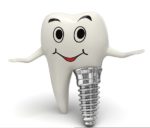Missing Back Teeth? Here Are Your Options for a Healthy Smile
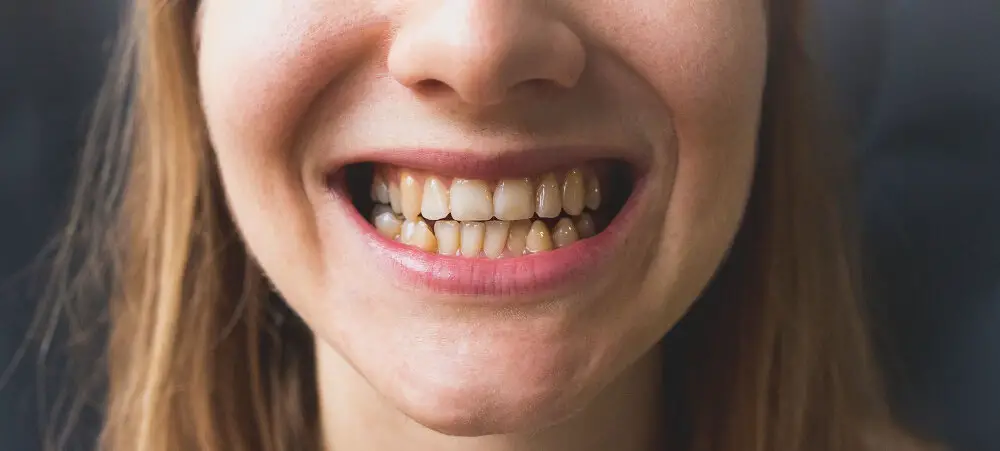
Losing a tooth can be a frustrating and painful experience, but losing a back tooth can be particularly challenging. Back teeth help us chew our food, maintain the shape of our face, and support the surrounding teeth. When a back tooth is missing, the rest of the teeth can shift, causing pain, discomfort, and even more tooth loss. Fortunately, there are several options available to replace missing back teeth and restore your smile to its former glory. Whether you’re missing a single tooth or several, your dentist can work with you to create a custom treatment plan that meets your unique needs. From dental implants to dentures and bridges, there are a variety of options available to help you achieve a healthy, functional, and beautiful smile. In this article, we’ll explore the different options available for replacing missing back teeth and help you make an informed decision about which treatment is right for you.
The Importance of Back Teeth

Back teeth, also known as molars, are a critical part of a healthy smile. They play a crucial role in chewing and grinding food, making it easier for the body to digest and absorb nutrients. Moreover, they maintain the structural integrity of the jawbone, preventing it from deteriorating and causing problems with bite alignment. Without back teeth, the remaining teeth often shift, causing misalignment and creating gaps that are difficult to clean, which can lead to further dental problems such as gum disease and tooth decay. Missing back teeth can cause several oral health issues, including difficulty in chewing food and an uneven distribution of biting forces. This can put undue pressure on the remaining teeth, causing them to wear down prematurely, leading to further tooth loss. Additionally, missing back teeth can lead to bone loss in the jaw, as the jawbone requires stimulation from teeth to maintain its density. This bone loss can cause facial sagging and an aged appearance, leading to a loss of confidence in one’s appearance. Therefore, it is essential to seek dental treatment for missing back teeth to maintain optimal oral health and prevent further complications.
Back teeth, also known as molars, play a crucial role in both chewing and speaking. These teeth are designed to grind and crush food, making it easier to swallow and digest. Without them, the remaining teeth would have to work harder to compensate, which can lead to increased wear and tear, as well as potential jaw problems. Back teeth also help to create certain speech sounds, such as \s\ and \t,\ by allowing the tongue to press against them. Missing back teeth can not only affect your ability to eat and speak properly, but it can also impact your overall oral health. Therefore, it’s important to explore all options for replacing missing back teeth to maintain a healthy smile.
Missing back teeth can have significant consequences on your oral health. When teeth are missing, the remaining teeth can shift out of place and cause misalignment, which can lead to bite problems, speech issues, and difficulty chewing. Additionally, the jawbone in the area of the missing teeth can begin to deteriorate because it is no longer being stimulated by the tooth’s roots. This can cause further dental problems and even change the shape of your face. Therefore, it is important to address missing back teeth promptly to prevent further damage and maintain a healthy smile.
Dental Implants

Dental implants are a popular and effective solution for replacing missing back teeth. They are a permanent dental restoration that is surgically implanted into the jawbone to replace the root of the missing tooth. The implant is typically made of titanium, which is a biocompatible material that fuses with the surrounding bone tissue to create a stable foundation for the replacement tooth. Once the implant has fused with the bone, a dental crown is attached to the top of the implant to complete the restoration. Dental implants are durable and long-lasting, and they look and function like natural teeth. They require the same care and maintenance as natural teeth, including regular brushing, flossing, and dental checkups. Dental implants offer many benefits for those who have missing back teeth. They can improve the appearance of your smile and restore your ability to eat and speak normally. They also help to maintain the structure of your jawbone and prevent the surrounding teeth from shifting out of place. Unlike other dental restorations, such as dentures or bridges, dental implants do not require any special adhesives or removal for cleaning. They are a permanent and hassle-free solution that can last a lifetime with proper care. If you are missing one or more back teeth, dental implants may be the right choice for you. Consult with a dental professional to determine if dental implants are the best option for your dental needs.
Dental implants are an innovative and effective solution for individuals with missing back teeth. They are essentially artificial tooth roots that are surgically placed in the jawbone to support a replacement tooth or bridge. Implants are made of biocompatible materials, such as titanium, that fuse with the jawbone over time. This process is called osseointegration and it creates a strong and durable bond between the implant and the bone. Once the implant has fully integrated, a custom-made porcelain crown or bridge is attached to it, restoring the patient’s ability to chew and speak properly. Dental implants are a long-lasting and natural-looking solution to missing teeth, and with proper care, they can last a lifetime.
Dental implants are a great option for replacing missing back teeth, providing numerous benefits that can improve a patient’s oral health and overall quality of life. Implants are durable and long-lasting, often lasting a lifetime with proper care. They also help to maintain the integrity of the jawbone, preventing resorption and preserving the strength of the jaw. Additionally, implants look and feel like natural teeth, allowing patients to eat and speak comfortably without fear of slippage or discomfort. Overall, dental implants are an excellent option for those looking to replace missing back teeth and improve their oral health.
The implant process starts with a consultation with a dentist or oral surgeon to discuss the patient’s medical history, dental history, and the desired outcome. The next step is the placement of the implant, which involves a minor surgical procedure to insert a titanium post into the jawbone. The healing process, known as osseointegration, takes several months as the bone and implant fuse together. Once the implant has fully integrated, an abutment is attached to the post, and a crown or bridge is placed on top. Recovery time varies depending on the patient’s individual situation and can range from a few days to several weeks. During this time, patients may experience some discomfort and swelling, but proper care and medication can help manage any discomfort.
Bridges

Bridges are one of the most common options for replacing missing back teeth. A bridge is a dental appliance that uses adjacent teeth as anchors to support a false tooth or teeth in between. The adjacent teeth are usually prepared by removing some of the enamel to create space for the bridge. Once the teeth are prepared, an impression is taken, and a dental laboratory creates the bridge. The bridge is then cemented into place, creating a seamless and natural-looking replacement for the missing teeth. Bridges offer several advantages over other options for replacing missing teeth. They are relatively easy to maintain and can last for many years with proper care. Bridges also help prevent the remaining teeth from shifting out of place, which can cause bite problems and other dental issues. Overall, bridges are a great option for people who want a natural-looking and durable replacement for their missing back teeth. However, it’s important to consult with a dentist to determine if a bridge is the best option for your individual needs and dental health.
Dental bridges are prosthetic devices designed to replace one or more missing teeth. They consist of artificial teeth that are anchored in place by attaching them to adjacent teeth or dental implants. Bridges are typically made of porcelain, gold, or a combination of materials, and are custom made to match the shape, size, and color of the patient’s natural teeth. The process of getting a dental bridge typically involves two or more visits to the dentist, during which the adjacent teeth are prepared and impressions are taken to ensure a perfect fit. Once the bridge is in place, patients can enjoy restored function and aesthetics, as well as improved oral health and overall well-being.
Bridges are an excellent option for replacing missing back teeth, as they offer several benefits. One of the most significant advantages is that they are a permanent solution that can last for many years with proper care. Bridges can restore the ability to chew and speak properly, improving overall oral function. Additionally, they can help prevent other teeth from shifting out of place, which can lead to a host of other dental problems. Bridges also provide a natural-looking appearance, blending seamlessly with the surrounding teeth and enhancing the overall aesthetic of the smile. Overall, bridges offer a reliable, long-lasting, and aesthetically pleasing solution for those who are missing back teeth.
One of the most popular options for replacing missing back teeth is a dental bridge. The bridge process involves creating a custom-made prosthetic tooth or teeth that are attached to adjacent healthy teeth or dental implants. The bridge helps to restore the function and appearance of the missing teeth, as well as prevent any remaining teeth from shifting or becoming misaligned. Recovery time for a dental bridge typically involves some soreness and sensitivity, but this can be managed with over-the-counter pain medication and usually lasts only a few days. With proper care and maintenance, a dental bridge can last for many years, providing patients with a durable and long-lasting solution for missing teeth.
Dentures
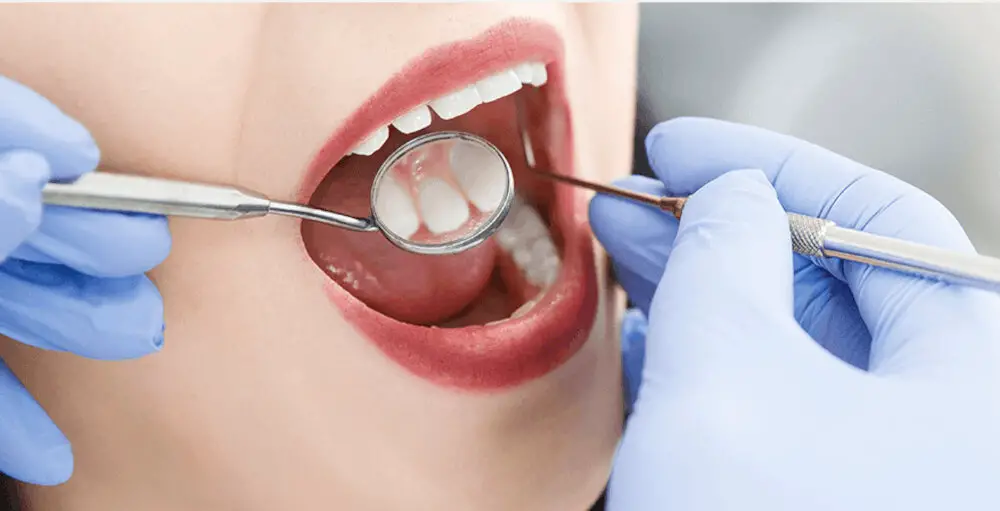
Dentures are a common and effective option for those who have missing back teeth. These removable appliances are custom-made to fit comfortably in the mouth and replace any missing teeth. Dentures can be made from a variety of materials, including acrylic resin, porcelain, and metal. They can also be partial or full dentures, depending on the number of missing teeth. One of the benefits of dentures is that they can improve the appearance of the smile and restore the ability to chew and speak properly. However, it is important to maintain good oral hygiene with dentures, as they can harbor bacteria and cause gum irritation if not properly cleaned. While dentures are a reliable option for missing back teeth, they do require some adjustment time. It may take a few weeks for the mouth to adjust to the new appliance, and there may be some initial discomfort. It is also important to keep in mind that dentures may need to be adjusted or replaced over time, as the mouth changes shape due to natural aging or other factors. However, with proper care and maintenance, dentures can provide a comfortable and functional solution for missing back teeth, allowing individuals to enjoy a healthy and confident smile.
Dentures are removable dental appliances that are used to replace missing teeth and surrounding tissues. They are custom-made for each individual patient and can be made of different materials such as acrylic, porcelain, or a combination of the two. Dentures work by fitting over the gums and remaining teeth, providing a functional and natural-looking set of teeth. They can replace a full arch of missing teeth or just a few missing teeth. Dentures can improve a patient’s ability to eat and speak, as well as improve their overall appearance and confidence. Proper care and maintenance of dentures are necessary to ensure their longevity and effectiveness.
Dentures are a great option for replacing missing back teeth as they offer numerous benefits. Firstly, dentures can restore the appearance of your smile, giving you a natural-looking set of teeth that can boost your confidence. Additionally, dentures can help you eat and speak more comfortably, as missing back teeth can make these activities difficult. Moreover, dentures can prevent the remaining teeth from shifting or tilting, which can cause further dental problems. With proper care and maintenance, dentures can last for many years and provide a comfortable and functional solution for those missing back teeth.
The denture process involves several steps that can vary depending on the patient’s needs. First, the dentist will take impressions of the patient’s mouth to create a mold for the dentures. Then, the dentures will be designed and crafted in a dental laboratory. Once the dentures are ready, the dentist will fit them to the patient’s mouth, making any necessary adjustments for comfort and functionality. Recovery time can vary, but most patients will need to adjust to the feeling of wearing dentures for a few weeks. Eating and speaking may also take some practice, but with time and patience, patients can enjoy a healthy smile and improved oral function.
Replacing missing back teeth is crucial for maintaining a healthy smile and overall oral health. When back teeth are missing, adjacent teeth can shift and move out of position, causing alignment issues and bite problems. This can lead to jaw pain, headaches, and even gum disease. Additionally, missing teeth can make it difficult to chew properly and can lead to digestive issues. By replacing missing back teeth with dental implants, bridges, or partial dentures, patients can improve their oral health, restore their ability to chew properly, and enhance their smile’s aesthetic appearance. It’s important to consult with a dental professional to determine the best option for replacing missing back teeth and maintaining optimal oral health.
When it comes to replacing missing back teeth, there are a few options to consider. One option is a dental implant, which involves surgically placing a titanium post into the jawbone to anchor a replacement tooth. Another option is a fixed bridge, which uses adjacent teeth as anchors to hold a prosthetic tooth in place. Removable partial dentures are another option, which can replace multiple missing teeth and can be removed for cleaning. Lastly, a full denture may be used to replace all of the teeth in the upper or lower jaw. Each option has its own benefits and drawbacks, so it’s important to consult with a dentist to determine which option is best suited for your specific needs and budget.
If you are struggling with missing back teeth, it’s important to be proactive in finding the best solution for your specific needs. While there are several options available, each individual’s situation is unique and requires a personalized approach. One of the best ways to determine the optimal treatment plan is to consult with your dentist. They can evaluate your overall oral health, discuss your lifestyle and preferences, and provide expert guidance on the most effective options. Don’t suffer in silence or try to navigate this alone – take the first step towards a healthier smile by scheduling a consultation with your dentist today.
Conclusion
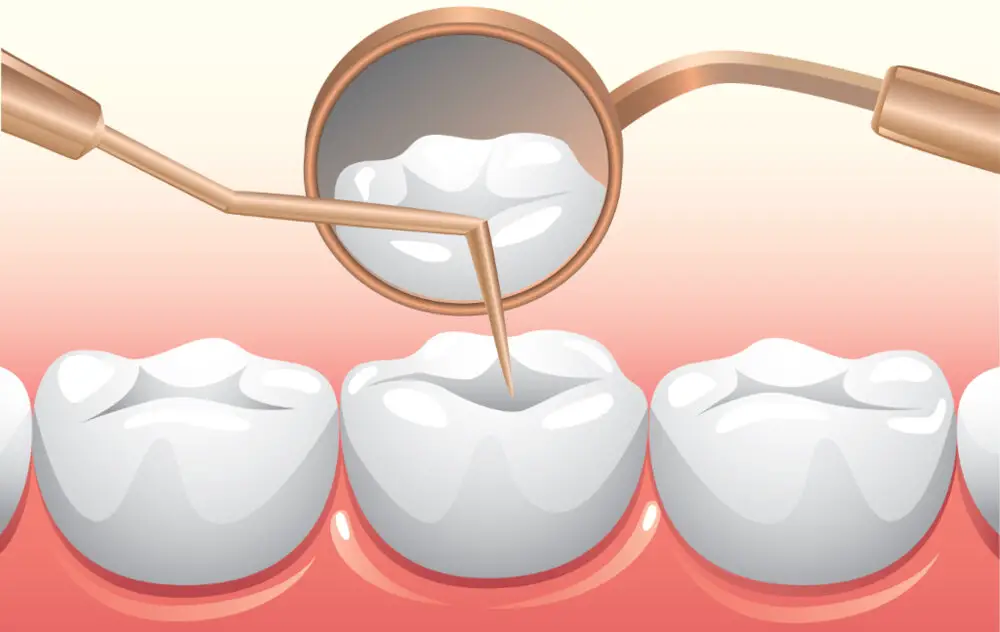
In conclusion, missing back teeth can have a significant impact on your oral health and overall well-being. However, there are various options available to restore your smile and maintain your dental health. From dental implants to dentures, each option has its benefits and drawbacks, and it’s essential to consult with your dentist to determine the best course of action for your unique situation. Regardless of the treatment you choose, it’s crucial to prioritize dental hygiene and regular check-ups to ensure a healthy and long-lasting smile. Don’t let missing back teeth hold you back from enjoying your favorite foods or feeling confident in your smile. Explore your options and take the first step towards a healthier, happier you.
